20 TOK Presentation Ideas for your IB!
The TOK presentation is every IB student’s worst nightmare. Speaking for an extended period of time about ‘AoKs’ and ‘WoKs’ just isn’t ok. But fear not, some of Lanterna’s elite IB graduates have noted down 20 TOK Presentation Ideas that worked for them! Take a look at these previously successful combinations to help spark your own genius knowledge questions or figure out a great real life situation! Keep in mind that for a good topic and knowledge question you should choose a specific real-life situation but then ask a knowledge question that can be applicable to multiple other real life situations.
NOTE: These topics are purely meant as inspiration and are not to be chosen blindly. Even though many of these topics led to high scores for some of our graduates in the past, it is important that you listen to the advice of your TOK teacher before choosing any TOK Presentation topic, as the presentation is internally assessed! Check out our TOK survival guide to read more about how your score is processed! 1. The Influence of Power on How We Treat Others Knowledge Question: To what extent does social hierarchy and power affect social relations? Real Life Situation: Bullying is prevalent in all social scenarios, no matter the age of the participants and has lasting impacts on the recipients
2. Changing Views on Gender and Sexuality Knowledge Question: To what extent does shared knowledge impact an individual’s response to ethical questions? Real Life Situation: In recent years the attitude towards gender and sexual diversity is changing at the fastest ever rate.
3. The Ethics and Morality of Designer Babies Knowledge Question: To what extent should ethical considerations be taken into account when making scientific progress? Real Life Situation: Healthy babies have been born to provide stem cells for siblings with ‘serious non-heritable conditions’.
4. Child Labour in India Knowledge Question: Can the pursuit of human rights be partially relinquished to promote economic growth? Real Life Situation: Child labour is legal in India in order to boost economic prosperity and to not punish large families.

Get Support from A Top Tutor Today
At Lanterna we have over 300 tutors who smashed TOK. They know exactly how to get an A in your TOK Essay and can give you tips and tricks on how you can do the same. What are you waiting for? Get your own tutor today!
Get Your Tutor Today 6. The Validity of Religion as a Way of Knowing Knowledge Question: Does religion as a way of knowing carry less credibility than, for example, science as a way of knowing? Real Life Situation: The conflict between conservative religious camps and active scientists still exists today – is this justified?
7. Societal Expectations on Love Knowledge Question: How does shared knowledge affect an individual’s knowledge and choice with regards to love? Real Life Situation: Polygamy, in the US, is trending upwards in popularity and acceptance.
8. Is Greed Good? Knowledge Question: Can our individual knowledge benefit from an increased amount of selfishness or greed? Real Life Situation: Carl Icahn, the inspiration behind the 1987 movie “Wall Street” argued greed is important in economics – is this still true today?
9. Induction and Generalizations Knowledge Question: How much is our personal knowledge, actions, and choices based on generalizations and acceptance of shared knowledge? Real Life Situation : Racial profiling is still active and rampant in airports – why is this and what are the underlying causes?
10. Should Drugs Be Legalised? Knowledge Question: How can reason be used to justify the ethicality of choices or other perspectives? Real Life Situation: Portugal decriminalized many drugs in 2001 to positive effect – can the same be done worldwide with similar results? Feeling cool about TOK? Check out our 100 EE titles blog post! 11. Predicting the Ebola Outbreak Knowledge Question: Can we trust Maths more than other areas of knowledge? Real Life Situation : The use of mathematical models to anticipate and track disease functions
12. Causing Offence Knowledge Question: How do we define our moral code? Real Life Situation : A report that UK TV viewers get more irked by low-cut dresses than racist soaps
13. Tourism and Indigenous Tribes Knowledge Question: Are certain indigenous knowledge systems incompatible with monetary systems? Real Life Situation : Tribal tourism being accused of exploiting indigenous people
14. The Similarities Between Sex Workers and Athletes Knowledge Question: To what extent ethical norms formed by shared knowledge affect our perception of individuals and their livelihoods? Real Life Situation : A comparison of the similarities between an athlete and sex worker
15. The Case of the Bali 9 Knowledge Question: How do religious and indigenous knowledge systems affect the application of justice Real Life Situation : The case of the ‘Bali 9’ is controversial because Australians, who in their home country would never be exposed to a death penalty, were sentenced to death in Indonesia for drug trafficking
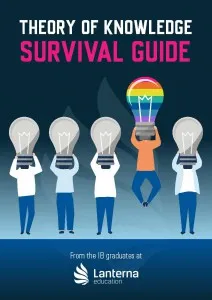
Grab Free TOK Resources!
16. Illegal Organ Trade Knowledge Question: To what extent can ‘money talk’ in outweighing morality? Real Life Situation : The rise in sales of bodily parts
17. Do Names Shape Attitudes? Knowledge Question: Does language shape our perception of others? Real Life Situation : Research exists that a name can influence how a child performs in school and even their career opportunities
18. The Future of Meat-Eating Knowledge Question: To what extent do the development of new technologies affect the shared beliefs of a society? Real Life Situation : The development of artificial meat and its connection to vegetarianism.
19. The Cost of Religion Knowledge Question: Do religious knowledge systems influence economic outcomes? Real Life Situation : Economic analysis has found that non-religious countries experience greater economic growth
20. Punishment by Birth Knowledge Question: To what extent do our religious or personal beliefs affect our perception of people? Real Life Situation : The decision that children of ISIS members would not be allowed to return to the UK
So there you have it, 20 top ideas to get your TOK brain whirring and TOK presentation started! If you need anymore more support regarding Theory of Knowledge, check out some of our other blog posts on it! And as always, if you’re struggling with any IB subject check out our online private tuition service!
NEED A TOK TUTOR? CLICK HERE!
Share article links

Related Articles
- IB Theory of Knowledge
- Most Popular
Theory of Knowledge IB Guide | Part 4
Pt. 4 – The Ways of Knowing: Language, Senses, Emotion and Reason What are the Ways of Knowing? All knowledge comes from somewhere. Even if we say it is innate (comes from within us) we still have to say how that knowledge appears. The Ways of Knowing are what they sound like, the methods through which knowledge becomes […]
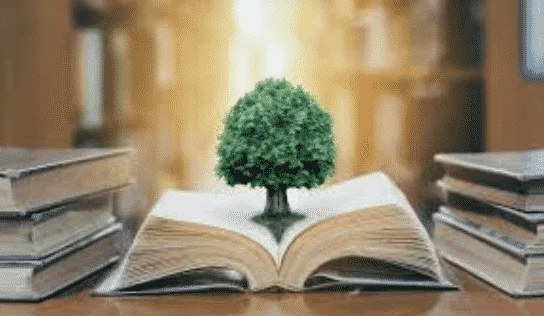
Breaking Down TOK Essay Titles 2020 | Part 2
Looking for the 20/21 titles? Click here! Here we go! Here are our ideas for the second half of the May 2020 TOK Essay Titles. Read on to be inspired! “The role of analogy is to aid understanding rather than to provide justification.” To what extent do you agree with this statement? This question, […]

- IB - Understanding It
Breaking Down TOK Essay Titles 2022
The TOK Essay can be a daunting task, and many of us struggle to even begin out of fear of doing something wrong. Not only are you expected to learn the philosophy of all the areas of knowledge, but now you have to write an essay about it too!? TOK Essay Titles in Human Sciences […]

TOK Presentation Examples from IBlieve Grads
These are a collection of TOK presentations from IBlieve grads to give you an insight into how your presentation could look!
Disclaimer: Please do not copy any of the content on the post. Here is the IB’s Academic Honesty policy for reference.
Elena – Natural Sciences
Real Life Situation: How does sense perception and reasoning influence the development of knowledge in natural sciences?
Knowledge Question: The Flat Earth Theory: The theory that the Earth does not follow the conventional understanding of science that the Earth is globular in shape and rotates on an axis, instead conceptualizing the earth to be a plane or a disc.
Her experience : My TOK Presentation was in the form of a roleplay, wherein my partner and I acted as two students debating the issue of the Flat Earth Theory and having a TOK-esque discussion. Looking back, the setting of my presentation was somewhat monotonous and dialogue-heavy, but it met most of the criteria. The success of a TOK Presentation largely varies with your assessor (in my case, it was also my TOK teacher, though it was recorded for moderation), and he strongly hinted that doing a roleplay instead of a standard presentation could make us stand out. Doing a roleplay is definitely more ambiguous, but if you can incorporate the required components of a TOK presentation, then it can turn out well. We structured the discussion as if it were a normal TOK presentation (including the AOKs, WOKs, and TOK terminology), but inserted it as a dialogue to show how there can be different perspectives/developments in answering the KQ. Choosing an RLS that can be viewed through multiple perspectives is also key in being able to develop a cohesive argument. Feel free to be expressive in the presentation, but avoid going off track!
Elena also wrote summaries of TOK, TOK Presentations, and the TOK essay! Find them here .

Aaryaa – Sense Perception
Real Life Situation: In 2015, a photo of a simple striped dress went viral on the internet and people all over the world were arguing about the colour of the dress. Some saw it as blue and black while others saw it as golden and white. In 2017, colour scientists revealed that the dress was blue and black. I always saw it as golden and white. The fact that I perceived a completely different colour was surprising and thus, I was curious to explore this RLS further and wanted to inquire the accuracy of the knowledge gained through sense-perception.
Knowledge Question: To what extent is the knowledge gained through sense-perception accurate?
My experience: For me, the best part of the TOK presentation process was deriving knowledge questions from the real-life situation. It was interesting to know how many different perspectives can be derived from a single RLS and that process also helped me annotate the TOK essay titles later on. In my opinion, each student should pay extra attention to this transitionary period between the RLS and the core of the presentation. Exploring the KQ may be the most important aspect of the presentation, but knowing how to form a knowledge question from any given situation helps you learn how to connect aspects from interconnected disciplines; this is a helpful skill to implement all throughout IB!
If I would have done something differently, I probably would have analyzed my KQ using a more interdisciplinary approach instead of just resorting to one AOK and one WOK for each claim. This would have made my presentation more relatable for people from a range of different backgrounds and thus it would have helped my conclusion fit better in any given context.

Imogen – History
Real Life Situation: A historian says society could collapse within a decade. He applies mathematical models to history, in order to predict the future.
Knowledge Question: To what extent can quantitative methods improve historical explanations?
My experience: I was applying to study History at the time, so I found it a great opportunity to explore knowledge questions within the subject. This helped with preparing for writing a personal statement and interviews. I found it useful to have a very clear structure for the presentation, with 3 premises, counter-claims, and intermediate conclusions. I had a final conclusion, and then explored the implications within 2 separate Areas of Knowledge. I think the most important bit of the presentation is having good structure and clarity. Also, have a close look at the top band of the mark-scheme to check you’re hitting the criteria!

Bianca – Memory
Real Life Situation: The Mandela Effect occurs when a vast number of people believe an event happened when it actually did not. A famous example of this, and our real-life situation, is a line from Star Wars. Darth Vader is credited with saying “Luke, I am your father.” even though the real line is “No, I am your father.”
Knowledge question: To what extent is collective memory more, or less, reliable than individual memory?
Outline (RPPF):
- Claim one: Collective memory is reliable as it is not impacted by emotions, but may lead to the spread of false knowledge
- Claim two: Individual memory may be reliable as it is not influenced by external forces, but internal forces (emotions) may lead to its distortion.
- Conclusion: Collective memory is more or less reliable depending on the situation.
My experience: I was in a group of 3 members and we made it to the 30-minute mark. If I were to go through the presentation process again, I’d work in pairs. Working in pairs allows you and your partner to bounce ideas off of each other whenever you are stuck in the process, and you can explain concepts to each other if you have any doubts! I feel that 20 minutes is enough time to properly develop your presentation without running your ideas dry. 10 minutes (individual presentation) can lead to underdevelopment, while 30 minutes (3 group members) can seem eternal. Be sure to follow the criteria closely and heed your assessor’s remarks!
Tiffany – Faith
Real Life Situation: The real-life situation that my group explored was the Jonestown Massacre which was a mass-murder suicide of California-Based Peoples Temple cult member at the behest of their leader Jim Jones. The death toll exceeds 900 people, making it one of the largest mass deaths in America.
Knowledge Question: How does faith affect our decision making in religious systems and history?
My experience: My group was initially confused as to what topic we should choose and ended up taking some time before we decided on one. Upon coming across the massacre, we were bewildered as to to how Jim Jones managed to convince 900 members to commit mass suicide within a short period of time, which eventually led us to question how faith in a religious system can affect someone’s decision-making to the extent that it could make someone take their own life and what role does it play in other major historical events. My personal advice would be to work on a topic that is interesting to you as that way, you would naturally come up with questions that would make your TOK presentation more in-depth and well thought out. However, don’t take too long to decide on a final topic as it takes time to break everything down and thoroughly explore each claim, especially with other IB tasks at hand. Aside from choosing a good topic, you also need to come up with a suitable KQ that can cover the topic well. Make sure to unpack your KQ, clarifying the WOKs, especially within the context of your topic.
An essential point to remember is that it is extremely easy to go off tracks especially if you are presenting since one thing naturally leads to another question and thus, a whole other discussion. Make sure to structure your presentation well so that everything in the presentation wraps up well and practice presenting with your group-mates multiple times.

You may also like…
- Elena’s overview of tok presentations
- Joseph’s advice on how to choose and explain real-life examples
Share this:
Leave a reply cancel reply, discover more from iblieve.
Subscribe now to keep reading and get access to the full archive.
Type your email…
Continue reading
IB TOK Presentation Guide (Updated 2023)
Unlock the secret to crafting a winning ToK presentation that wows your audience. Learn the must-know tips to nail your presentation and get top marks!

Table of content
What is a tok presentation, 5 key points for your ib tok presentation, basics for your presentation, slide 1 - title page, slide 2 - decontextualization , slide 3 - knowledge question , slide 4 - development (1) , slide 5 - development (2) , slide 6 - development (3) , slide 7 - conclusion , slide 8 - link back to the rls, example outline for a tok presentation, evidence can be, improve your presentation style.
What up? What up?
Welcome to this well-written article on Nail IB: your secret weapon for moving closer to a perfect score of 45. This article is the first step towards answering how to make a tok presentation. Before you answer this question, you must familiarise yourself with the fundamentals of the TOK presentation.
Remember, we at Nail IB prioritize your journey of becoming a thinking intellectual. This is done by understanding the fundamentals of the diploma, including IB TOK presentation , TOK Essay , Extended Essay , Internal Assessment , and CAS.
Before you read this beautiful article, browse a quick video by Amanda Elise!
TOK presentation is quite similar to TOK Essay . Both IB concepts emphasize your assessment of critical thinking skills . A TOK Essay takes a more conceptual starting point inspired by the questions released by the International Baccalaureate Organisation. In contrast, an IB TOK presentation, in particular, helps an examiner evaluate your understanding of acquired knowledge based on a real-life situation. To learn the tips and hacks for your essay, click here . If you wish to learn how to ace your presentation, continue reading!
TOK presentation requires the student to demonstrate a solid analysis of a real-life situation (RLS). This is done by choosing a question as a framework for examining the practical implementation of theoretical knowledge in everyday life. In essence, the question for your presentation should be inspired by a real-life situation.
So good so far?
Remember that a knowledge-based question is not the focus but a means for a critical discussion. It is but a way to explore real-life situations and the areas of knowledge connected with them.
Okay, so here is a recap! You need to find a real-life situation. Then it would help if you thought about the areas of knowledge directly connected to the problem. Once you do that, you need to forge a question that enables you to connect the dots for the audience and walk them through your thinking process. This knowledge question will be the basis of your presentation as you attempt to develop different perspectives to answer the question. The scope of finding a real-life situation varies from a case in your local community or a broader international issue.
- Planning Document
- TOK presentation topic
- KQ & RLS ( Knowledge Question & Real Life Situation )
- Conclusion ( Creating a connection from the first slide to the last )
- Confidence ( Most important when it comes to presentations and sadly mostly neglected as well )
Once you have these 5 pillars set, nothing can stop you from achieving your TOK presentation.
Now let's shed some light on the basics to begin with. Presentations are integral to every course known as 'student kind.' Every other method that we do requires it. With IB, it is one of the two compulsory TOK assignments. The IB TOK presentation is meant to test your understanding of TOK concepts in relation to a real-life situation.
TOK presentation is done individually, in pairs, or in three groups. An IB TOK presentation must be delivered in a language known to all class members. Each presenter must take approximately 10 minutes , roughly 30 minutes per group . After the presentation, discussion time should be scheduled.
Moving ahead, the first question that comes to a student's mind is where to begin. Don't worry; that will be the first question I'll answer hereafter.
You start with your planning document. This document will be your blueprint for building everything around your presentation and help you maintain your workflow and direction (in case you get lost in real-life situations, knowledge questions, claims, counterclaims, etc.).
Why is this easy?
- You have done this before in your TOK ESSAY, i.e., applying your concepts in the development section. The idea is mostly the same except for the presenting part.
- You are conceptually straightforward with your Knowledge questions, claims, and implementation in real-life situations (also covered by you in the essay).
I will break down what content must go on each slide alongside what you must address while explaining that slide to everyone. You can always make modifications based on your requirements. The structure will help you clarify yourself to the audience while maintaining the flow of your TOK presentation.
- The title of your presentation.
- Your group members’ names.
What to address
Introduce a real-life situation (RLS). Please elaborate on your perception of the problem when you first encountered it. Emphasize why it is of significance to you.
- Talk about your initial thoughts about the RLS. It would help if you started transitioning from using 'layman' words to explaining everything using TOK terminology. This can be done using some key terms from the Areas of Knowledge associated with your RLS.
Explain a few things about the RLS and how we know them. For example, our senses may provide some insights, while our emotions offer others. To put it in TOK terms, you can analyze the extent to which these insights are valid/authentic. Address the limitations of your RLS and your interpretation of it. This will help you show your journey from the RLS to your Knowledge Question.
- Talk about your Areas of Knowledge (AoKs) and Ways of Knowing (WoKs) that you will use to explore your Knowledge Question. Explain their connection to your Knowledge Question (KQ).
What to address:
Mention 2 Knowledge Questions that you considered and the one you are investigating. Explain how the Knowledge Question you have chosen will help explain the RLS. For each of your AOKs/WOKs, preview how they can help to answer your KQ. Explain any assumptions you’ve made about your KQ (if any). Dig deep into the key terms that need to be explained for us to understand your KQ.
- Briefly state your claim for the first AOK and the Ways through which you have decided to answer your KQ
- Support your claim through a piece of scientific evidence (a scientific theory).
- Briefly state your counterclaim (an opposing idea in the same AOK/WOK). For example, if you examine your situation through a philosophical point of view and your way of knowing is sensory, state that philosophy is mainly abstract science. Therefore your interpretation can be scrutinized in a very different way if examined through a scientific lens. Furthermore, you can challenge your way of knowing by stating that sensory means of acquiring knowledge can be deceptive as one relies on memory to recall how one felt at a particular point.
Alright. Breathe! All of this can sound way over the top. I felt the same way when I first encountered TOK. But this is precisely how you are supposed to feel. So you are on the right track. Read on!
Explain your claim and how it is supported by evidence. Clarify how it would answer the KQ. Then do the same for your counterclaim and keep it by evidence. Ensure to clarify how your counterclaim could respond to the KQ differently than your claim did. Use your conclusion to connect the claim and counterclaim.
Repeat the steps mentioned on slide 4 using your second Area of Knowledge and Way of Knowing.
Repeat the steps mentioned on slide 4 using your third Area of Knowledge and Way of Knowing.
- Write down your conclusion.
- Write down a possible flaw in your conclusion.
Explain your conclusion and elaborate on how this conclusion is supported by the insights you’ve drawn along the way. Address the possible weakness or flaw in your decision. You can explain with an example of someone from a different perspective (another gender, age, time, or culture) who might disagree with this conclusion.
- Write 2 interesting ways that your conclusion applies to the RLS.
- Write down two other real-life situations (which are related). Please provide pictures of these two situations so they can be quickly understood. One should be personal to you (something one of you encountered), and another which is more of a shared experience.
Clarify how your conclusion applies to the RLS. Explain how this conclusion can help to explain the other 2 RLS you have on your previous slides.
Good Job! Your work here is done. Just leave this slide up on the screen and watch your professors go gaga on your excellent presentation. (You can thank us later ;))
As a suggestion, you should have your knowledge question written on the bottom as a footer. It helps the audience easily relate your various insights to the knowledge question.
Here are some links to TOK presentation examples:
- Click here to access the presentation on Decision Making.
- Click here to access the presentation on Language.
IB TOK presentation topic
For referral purposes, you can look into some previously chosen TOK presentation topics from the links below to get going:
- Check out this list of knowledge questions by Larry Ferlazzo to get inspired.
- The student room has a good conversion in choosing a good presentation topic. Make sure to give it a read .
- Click here for some more similar topics
You must have noticed that we use a Claim, Counterclaim, Mini-Conclusion structure as described in our TOK Essay article . We follow the claim, counterclaim, and mini-conclusion process for each of your developments (AOKs or WOKs) at least thrice. Here's an example of one of your developments:
-For example, your claim might be that emotion is reliable when trying to achieve new artistic knowledge, and you show this using some theory (evidence) you learned from your professor.
-Your counterclaim is a problem (a limitation) with your claim or an opposing idea from the same perspective. Emotion can sometimes lead to unreliable insights into the arts (i.e., art is open to many interpretations). You show this using (as evidence) an example from your own life experience or theory that accentuates the unreliability of human emotion.
-And then, in the mini-conclusion, you basically have to find a way to draw together the two opposing sides. You have to synthesize these two insights to arrive at a more insightful understanding. For instance, emotion can be both reliable and unreliable simultaneously, or there are situations where it's pretty hard to know whether feelings are helping or not (in terms of achieving reliable knowledge). So your MC (mini-conclusion) is that emotions are highly dependable, given that the individual can keep their personal biases away from the situation being experienced.
When you reach your significant conclusion, the key is to draw together and synthesize the insights from all your mini-conclusions. This shows an intellectual approach toward answering your KQ. It also makes your presentation more compelling.
- Examples from the course or from your research. For example, stories of actual scientific experiments or how society responded to a particular piece of art.
- Personal examples. Specific and realistic examples from your life experiences are influential in presentations as they are the most convincing
Here are a few pointers to keep in mind while presenting
- Golden rule - practice makes perfect. As you present in front of an audience (your classmates and your teacher), you must make sure you can articulate your ideas effectively. Rehearse well for your final showdown.
- Be clear and loud enough to be heard. A presentation's positive aspect is that it allows you to create many links since it is verbal. E.g., 'referring back to the first slide of the presentation.'
- Creating notes to aid yourself in being well aware of what's next helps maintain your flow. This amps up your preparedness. However, you should avoid sticking to the notes too much. Eye contact is significant to make your audience feel addressed.
- Avoid cramming everything on the slides. Keep minimal content and avoid putting in full-blown long sentences.
- If you are using images to display something, make sure they are not pixelated and are clearly visible to the audience.
- Ensure you stay within your time limit for the presentation.
- Stay calm about the questions at the end. The questions asked by your teacher are there to help you. If you've missed something in your presentation that is key to answering the knowledge issue, this is your opportunity to gain back marks. If you can't answer the question, make a statement or give an opinion. A classic way of avoiding questions is to make your own question, 'That's an excellent question, but I think the main issue here is….' But try to answer them because they are very likely to be beneficial.
- The audience can ask questions too. Avoid planting a question in the audience as it is too obvious and often creates a wrong impression.
- Lastly, confidence is the key. It would help if you had faith in yourself and the amount of work you have put in. You deserve all of your trust and confidence for your hard work, so it reflects in your way of presenting and is communicated to the evaluator and the audience effectively.
This article will be the foundation for understanding how to make a tok presentation. A critical key to success is self-confidence. An important key to confidence is preparation ~ Arthur Ashe .
If you are still struggling heaps with your TOK essay, feel free to subscribe to our tok notes bundles or get access to more than 500+ IBDP notes and past papers here .
Nail IB is your virtual companion that helps you hustle through your diploma and provide you with the right resources at the right time. To know more about acing IB, click here .
Before you go!
- You can also refer to my previous TOK Essay article to explain KQ, AOK, WOK, etc., in depth.
IB Resources you will love!
30 Different TOK Presentation Topic Ideas to Succeed in IB
Table of contents
- Writing Metier
Writing a TOK essay or preparing for a TOK presentation confuses most students. They find it all extra challenging and sometimes don’t understand how they should proceed with it. Given that the TOK essay’s structure and the presentation are unlike others, students can find it challenging to proceed with it. You can only do well on the TOK presentation if you have an excellent idea.
If you want, you can order a custom IB TOK Presentation done by one of our IB experts. Click the button below to fill out our online order form with details of your presentation.
If you decided to select a topic and complete the presentation by yourself, let us get back to the main idea of this article – TOK topics.
List of good TOK presentation topics
The same as with TOK exhibition , the idea you go for needs to be highly relevant to grab the reader’s attention and make sure that you add some value to their knowledge. With such a topic, your chances of doing better become much higher.
Like many other students, you should know that you are not alone if you are also struggling with the TOK presentation topic. So many students are in the same boat as you, struggling to come up with solid TOK presentation ideas .
Here are a few good TOK presentation topics that can help you, and make sure to select the one that drives you or use one as an inspiration:
1. Exercising power and how that affects others
This is a fascinating topic because it is broad. You can choose many different things you want to work with if you choose this topic. Coming up with a knowledge question for this topic is also much easier. You can choose anything that you are comfortable with, given that power can be exercised in different ways in different situations.
Knowledge question: how do social hierarchies affect the treatment of people?
Real-life situation : You can talk about bullying and its prevalence in so many cultures. You can talk about how it affects different people in relation to their behavior.
2. Child labor in low-income countries
You can talk about the harmful effects of child labor.
Knowledge question: How and why do influential companies of the world use child labor?
Real-life situation: Companies like Nike use child labor for low-cost benefits.
3. Effect of religion on our everyday lives
You can talk about how religion is a crucial aspect of people’s lives, profoundly impacting everything they do.
Knowledge question: How does religion alter our beliefs about things?
Real-life situation: So many actors have changed their approach to doing things due to religion and how their thought processes changed.
4. Political tension between countries
If you are interested in economics and politics, then this is an exciting topic that you can explore.
Knowledge question: how does politics between countries affect their relations?
Real-life situation: Economic tensions between China and the USA and how these tensions affect the whole world.
5. How greed affects our lives
Greed is one of the critical aspects of human nature, and it would be interesting to see how greed affects our lives, turning us into people we aren’t.
Knowledge question : What are the different ways our life changes due to greed?
Real-life situation : Many countries have been greedy for money and have ended up in very bad situations due to that greed. This can be touched upon.
Breathe Easy! We’re Handling Your Paper
- Polished Papers : Styled right, glitch-free
- Ask Away : Direct chat with your writer
- Free Goodies : Revisions, title page, and bib
- Fair Prices : Plus a money-back guarantee
- All Human : No AI, just real experts
- Private & Secure : Your details, our secret
Bye-Bye, Burnout!
Slash 15% OFF using the coupon code: BLG15WM

6. Should drugs be legalized?
Drug consumption is on the rise all over the world. It would be interesting to see the different perspectives there are about drug legalization in the world.
Knowledge question: What role does ethics play in drug legalization in different parts of the world?
Real-life situation: Countries like Mexico have legalized drugs to some extent. It would be useful to see how these countries have done so from an ethical perspective.
7. Sex workers in the legal context
Sex workers exist in almost all countries. It would be interesting to see this from an ethical perspective.
Knowledge question: Are sex workers working legally?
Real-life situation: Sex workers are very common in Thailand. Exploring that from a legal context can help shed light on how things worked.
8. Athletes and their training
For people who love sports, this would be a very nice topic to work on.
Knowledge question: What kind of training do athletes need to make it big?
Real-life situation: The US has the greatest number of athletes. Using that as an example, you can talk about the kind of training methods that are used there and how that leads to great training for athletes.
9. Poverty in low-income countries
Some countries are suffering from poverty, due to which people don’t have access to proper healthcare. It would be interesting to explore why these countries have greater poverty levels than others.
Knowledge question: How does poverty affect low-income countries?
Real-life situation: In countries like Burundi, people die of malnourishment daily. You can study why these countries live below the poverty line.
10. Climate change in the world
Climate change is affecting almost all countries of the world. It would be nice to explore what we as people can do to minimize the negative impact we have on the environment .
Knowledge question: What can human beings do to minimize the impact of climate change?
Real-life situation: The lifestyles of people in Afghanistan and Bangladesh can be explored to see how they affect climate change and what learnings we as human beings can get from that.
11. Racial discrimination and how it affects us
Racial discrimination is prevalent in almost all parts of the world.
Knowledge question : How does racial discrimination affect who we are as people?
Real-life situation: People of color are discriminated by whites in the US. By looking at how they are treated, you can study how that affects them and turns them sour.
12. Gender Inequality and how that affects our lives
Gender inequality is subconsciously taught to us and is widely prevalent.
Knowledge question: How does gender equality teach us different ways of doing things?
Real-life situation: Movies like Snow White and Cinderella have been teaching us how to conform to different gender roles from a very young age. It would be interesting to explore this from the lens of these movies.
13. Education and learning disabilities
Several students have struggled with learning problems their whole lives. Yet, no matter how hard they try, something holds them back.
Knowledge question: What is being done to promote inclusive education in major world economies?
Real-life situation: Many developed economies all over the world are working towards promoting inclusive education as much as possible.
14. The use of ethics in decision making
Ethics is a very integral part of decision-making. Whenever decisions are taken, they have to be done in accordance bearing in mind what is right and what isn’t.
Knowledge question: What role does ethics play in decision-making?
Real-life situation: in many situations, we don’t see the good in things. We fail to see how we can make decisions in life, bearing in mind ethics.
15. Media consumption and its effect on behavior
The content we consume has a huge effect on the way that we behave. This is especially true for younger children.
Knowledge question : How is kids’ behavior shaped by the content they watch?
Real-life situation: Studies have shown how children who watch violence on television have greater chances of becoming violent in their lives.
16. Abortion and its justification
There are different rules and regulations concerning abortion in the world.
Knowledge question: Should abortion be legal, and under what justification?
Real-life situation: in some parts of the world, abortion is legal, whereas in others, there are different rules about it. It would be interesting to see the rationale behind each and why it exists.
17. Illegal organ trade
Organs are traded all over the world for a great price. It would be interesting to study how there are rules with regard to this in different parts of the world and what the take of morality is in this regard.
Knowledge question: To what extent do extensive amounts of money outweigh morality?
Real-life situation: There is a rise in sales of body organs all over the world. To study how and why this happens in terms of the moral aspect of things would be very interesting to see.
18. The rise in vegan culture
A lot of people all over the world are turning towards veganism.
Knowledge question: Why is there so much awareness around the wrongs of meat eating?
Real-life situation: The fact that so many people are now turning towards plant based foods.
19. Unemployment and its effect on the world
Rising unemployment has led to a lot of pressure on governments in the modern day and age.
Knowledge question: How has unemployment resulted in greater economic pressure ?
Real-life situation : Ever since COVID-19, many people have become jobless, resulting in excess pressure on the governments that are trying to help people sustain themselves.
20. Lack of education and its relation to violence
There is a very low literacy rate in several parts of the world.
Knowledge question: Is there a direct relationship between low literacy rates and its relation to violence?
Real-life situation: In countries where literacy rates are low, there are high crime rates. So it would be interesting to explore how there is a correlation between the two and what can be done about it.
21. Terrorism and Legislations
I believe that there is no need to continue explaining each topic meaning, so let’s continue with RLSs and KQs.
Knowledge question: How is terrorism a result of less stringent government policies?
Real-life situation: Terrorism in many parts of the world is only seeing an upward trend. It would be interesting to see how this is related to there being a lack of rules and regulations with regard to this.
22. Pandemics and our abilities to deal with them
Knowledge situation: Are we in a position to deal with world pandemics correctly?
Real-life situation: COVID-19 showed us what it is like to live amidst a pandemic.
23. Mental health issues in the world
Knowledge question: How can we raise awareness about mental health issues worldwide?
Real-life situation: So many people are struggling with mental health issues all over the world. It would be interesting to explore this concept in further detail.
24. Substance abuse
Knowledge question: How is substance abuse destroying the youth?
Real-life situation: There is a huge rise in substance abuse rates in many parts of the world.
25. Exercising and its growing awareness
Knowledge question: What factors have led to the growing awareness about exercise all over the world?
Real-life situation: in different parts of the world, there seems to be a greater awareness in relation to physical exercise.
26. The culture of influencers
Knowledge question: How has the marketing landscape changed as a result of a rise in the number of influencers?
Real-life situation: On social media, we now see a rise in the number of influencers who have a major impact on the purchases consumers make.

27. Animal testing
Knowledge question: How are there several moral implications in relation to animal testing?
Real-life situation: we see so many people talking about how and why animal testing should now be banned.
28. Sexual harassment in the workplace
Knowledge question: how is sexual harassment harmful to mental health?
Real-life situation : the rise in number of sexual harassment cases at workplaces is only rising over time.
29. Population control
Knowledge question: should there be more awareness around population control?
Real-life situation: in many parts of the world, people don’t have as much knowledge as they should about population control.
30. Body positivity
Knowledge question: how have society’s ideals altered our beliefs about body positivity?
Real-life situation: there are so many teenagers who evaluate their self-worth based on what they see in the mirror.
Select good topics to do a presentation on
So these are a few good topics to do a presentation on. Now, select the prompt that suits you better and start working on your presentation . With these ideas in mind, you are sure to be able to impress the examiner with what you have to discuss!
Before you leave, make sure to check our recent articles where we have shared other topic ideas for IB Internal Assessments and IB Extended essays. I’m attaching a list of different articles according to the type of paper:
- IB ToK Essay Prompts
- Math IA Topic Ideas
- History IA Topics
- Topics for Comparison Essays
- Extended Essay Topic Ideas
- Economics IA Topics
- ESS IA Ideas
- Critical Thinking Essay Ideas
- Chemistry IA Topics that ROCK
Good luck with your IB TOK Presentation, and should you ever seek expert assistance – Writing Metier is a place to go. Our IB writers can help you with almost any type of paper and promise to follow all the latest IB criteria or instructions provided from your side.
Free topic suggestions
Similar posts
100+ ib extended essay topic ideas for your ease.
One of the very important requirements of an IB diploma is the extended essay. This really helps bring up the total score. And one problem students face here is gathering ideas for their IB extended essay. Here is some guiding information that can help with extended essay topics.
12 ToK Key Concepts | Explained
This write-up is all about TOK concepts, what they are and how essential they are to help you work your way through things. In total, there are 12 TOK concepts. Let's figure out more about each
Given that the TOK essay's structure and the presentation are unlike others, students can find it challenging to proceed with it. You can only do well on the TOK presentation if you have an excellent idea.
70+ IB Physics IA Topics and Research Questions
In the realm of IB Physics IA, students have the golden opportunity to explore a diverse range of topics, from the wonders of quantum mechanics to the principles governing our vast universe. This guide has been crafted to assist you in pinpointing a topic that not only piques your interest but also aligns with your academic pursuits. As you sift through these carefully selected topics and research questions, we hope you find that perfect match that leads to a successful and insightful project
AOK and WOK in TOK Essays | Detailed Guide
Areas of knowledge and ways of knowing are two essential concepts that you need first to understand before you begin working on these. To find out more about areas of knowledge and ways of knowing, continue reading!
How to get an A in TOK essay? Rubric + A-grade SAMPLES
Writing a Theory of Knowledge essay can seem challenging to most students because they guess how hard it is to get an A in TOK. No matter how hard they try, they feel like they just can’t crack the IB TOK essay, and one of the major reasons for this is that the structure of this essay is very different from other essays.
We rely on cookies to give you the best experince on our website. By browsing, you agree to it. Read more

IB Theory of Knowledge Exhibition: Guidance and Ideas
Charles Whitehouse
The Theory of Knowledge (TOK) course is a fundamental part of the International Baccalaureate Diploma Programme. The course is intended to encourage students to think critically about the nature of knowledge, and to consider the ways in which different areas of knowledge are interrelated. Students should demonstrate their ability to question the assumptions and biases that underlie different forms of knowledge, and to recognize the value of different perspectives.
The TOK Exhibition is an internally assessed oral presentation which makes up 33% of students’ TOK grade. It is a new assessment component, starting from the first assessment in 2022. The TOK grade and the Extended Essay (EE) make up a maximum of 3 points. If students receive a minimum of an A and a B across the two subjects, they will achieve the full 3 points.

Source: IB TOK Guide .
What is the TOK Exhibition?
The TOK Exhibition is an oral presentation which allows students to demonstrate their understanding and exploration of a real-life situation or issue through the lens of TOK. The exhibition is intended to be an opportunity for students to apply their knowledge and understanding of the TOK course in a practical and meaningful way.
Students create an exhibition of three objects, or images of objects, and write a commentary on each object. The total exhibition should be fewer than 950 words.
It is recommended that the Exhibition be rooted in one of the TOK themes:
Core theme - knowledge and the knower. This theme encourages students to reflect on themselves as knowers and thinkers, and to consider the different communities of knowers to which we belong.
Optional themes: Knowledge and technology; knowledge and language;
knowledge and politics; knowledge and religion; and knowledge and indigenous societies
You will have roughly 8 hours of teaching time to prepare for the exhibition task.
What are the prompts for the Exhibition?
There are 35 prompts which students can respond to. All three objects should link to the prompt.
1. What counts as knowledge?
2. Are some types of knowledge more useful than others?
3. What features of knowledge have an impact on its reliability?
4. On what grounds might we doubt a claim?
5. What counts as good evidence for a claim?
6. How does the way that we organize or classify knowledge affect what we know?
7. What are the implications of having, or not having, knowledge?
8. To what extent is certainty attainable?
9. Are some types of knowledge less open to interpretation than others?
10. What challenges are raised by the dissemination and/or communication of knowledge?
11. Can new knowledge change established values or beliefs?
12. Is bias inevitable in the production of knowledge?
13. How can we know that current knowledge is an improvement upon past knowledge?
14. Does some knowledge belong only to particular communities of knowers?
15. What constraints are there on the pursuit of knowledge?
16. Should some knowledge not be sought on ethical grounds?
17. Why do we seek knowledge?
18. Are some things unknowable?
19. What counts as a good justification for a claim?
20. What is the relationship between personal experience and knowledge?
21. What is the relationship between knowledge and culture?
22. What role do experts play in influencing our consumption or acquisition of knowledge?
23. How important are material tools in the production or acquisition of knowledge?
24. How might the context in which knowledge is presented influence whether it is accepted or rejected?
25. How can we distinguish between knowledge, belief and opinion?
26. Does our knowledge depend on our interactions with other knowers?
27. Does all knowledge impose ethical obligations on those who know it?
28. To what extent is objectivity possible in the production or acquisition of knowledge?
29. Who owns knowledge?
30. What role does imagination play in producing knowledge about the world?
31. How can we judge when evidence is adequate?
32. What makes a good explanation?
33. How is current knowledge shaped by its historical development?
34. In what ways do our values affect our acquisition of knowledge?
35. In what ways do values affect the production of knowledge?
Get expert help with your IB TOK
The world's leading online IB TOK tutoring provider trusted by students, parents, and schools globally.
4.93 /5 based on 509 reviews
How should I choose my objects?
Students have quite wide flexibility in choosing their objects for the Exhibition. Students are encouraged to select objects that are of genuine interest and that they have encountered in school or in their personal lives.
The objects can be digital as well as physical. For example, students could include a photograph of an object such as a historical document or a real-life sculpture where it would not be feasible to exhibit the physical object. They can also use digital objects, such as a screenshot from social media, but they must be specific objects with a specific real-world context that exist in a particular time and place, including virtual spaces. For example, Twitter as a general media platform is not an object, but a specific tweet is. This is true more generally - the objects should not be generic from the internet or a generic object, but should be more specific.
The objects can also be created by the students themselves, but they must be pre-existing objects, not created specifically for the exhibition.
Have a look at our comprehensive set of IB Study Notes and IB Practice Questions , developed by expert IB teachers and examiners!
What are some example objects and ideas?
The IB gives these examples of objects:
- A tweet from the President of the United States
- An image of the painting Guernica by Pablo Picasso
- The student’s own extended essay (EE)
- A basketball used by the student during their physical education lessons
- The graphic novel The Colour of Earth by Kim Dong Hwa
- A painting that the student created in their DP visual arts course
- A refillable water bottle provided to each student in a school as part of a sustainability initiative
- A news article from the popular website Buzzfeed
- A photograph of the student playing in an orchestra
These demonstrate what is means for the objects to have real world context: a Google Images picture of a basketball would be inappropriate, but the student’s own basketball is fine.
It would, of course, be a good idea to be more original than this! This is especially true because the IB are looking for some personal interest in the objects from the student.
Here are some new ideas by an expert IB TOK tutor of types of objects you could choose.
- A painting or sculpture
- A scientific technology
- A historical document or artifact
- A piece of literature or film
- A photograph or video from your own life
- A musical composition or performance
- A news article, tweet or a podcast
- A personal item such as a family heirloom or an object of sentimental value
For example, if the student chose the theme ‘Knowledge and Language’, the three objects chosen may be:
1. A language translation dictionary, with a commentary exploring the limitations of translating individual words without the context of the sentence or the speaker, based on the student’s experience of acquiring a new language and attempting to communicate with native speakers
2. A script from a historical play studied in school, with a commentary exploring what can be learnt about the past through the language in the text, which is rooted in contemporary ideas, but what knowledge may be lost in not being able to see the play performed as the playwright imagined it at the time
3. A piece of Grade 1 homework from a student’s primary schooling, with a commentary exploring how children’s ability to express their thoughts through language is limited by their lack of skills and experience
What are the assessment criteria?
The TOK Exhibition is marked out of 10 marks. The grade is internally assessed by the student’s teacher and externally moderated by the IB at the end of the course.
This is the IB’s description of an Exhibition which should be marked 9-10. The main assessment question is: “Does the exhibition successfully show how TOK manifests in the world around us?”
The exhibition clearly identifies three objects and their specific real world contexts. Links between each of the three objects and the selected IA prompt are clearly made and well explained. There is a strong justification of the particular contribution that each individual object makes to the exhibition. All, or nearly all, of the points are well-supported by appropriate evidence and explicit references to the selected IA prompt.
In conclusion, the exhibition is a dynamic learning experience requiring students to employ various skills, including research, critical thinking, and collaboration. It demands connecting different knowledge areas, demonstrating critical thinking, and effectively communicating ideas. The assessment, conducted by teachers and externally moderated by the IB, reflects the depth of student engagement. Incorporating IB tutoring can further enhance students' capabilities, offering targeted guidance to refine these essential skills, ensuring a more profound and well-rounded exhibition experience.
Need help from an expert?
The world’s top online tutoring provider trusted by students, parents, and schools globally.
Study and Practice for Free
Trusted by 100,000+ Students Worldwide
Achieve Top Grades in your Exams with our Free Resources.
Practice Questions, Study Notes, and Past Exam Papers for all Subjects!
Need Expert Help?
If you’re looking for assistance, get in touch with one of our expert tutors who will be able to provide you with the support you need for IB Theory of Knowledge . We’ll be there every step of the way!

Professional tutor and Cambridge University researcher

Written by: Charles Whitehouse
Charles scored 45/45 on the International Baccalaureate and has six years' experience tutoring IB and IGCSE students and advising them with their university applications. He studied a double integrated Masters at Magdalen College Oxford and has worked as a research scientist and strategy consultant.
Related Posts

IB Theory of Knowledge: Areas of Knowledge Explained

How to Choose Your IB Subjects

Hire a tutor
Please fill out the form and we'll find a tutor for you
- Select your country
- Afghanistan
- Åland Islands
- American Samoa
- Antigua and Barbuda
- Bosnia and Herzegovina
- Bouvet Island
- British Indian Ocean Territory
- Brunei Darussalam
- Burkina Faso
- Cayman Islands
- Central African Republic
- Christmas Island
- Cocos (Keeling) Islands
- Congo, The Democratic Republic of the
- Cook Islands
- Cote D'Ivoire
- Czech Republic
- Dominican Republic
- El Salvador
- Equatorial Guinea
- Falkland Islands (Malvinas)
- Faroe Islands
- French Guiana
- French Polynesia
- French Southern Territories
- Guinea-Bissau
- Heard Island and Mcdonald Islands
- Holy See (Vatican City State)
- Iran, Islamic Republic Of
- Isle of Man
- Korea, Democratic People'S Republic of
- Korea, Republic of
- Lao People'S Democratic Republic
- Libyan Arab Jamahiriya
- Liechtenstein
- Macedonia, The Former Yugoslav Republic of
- Marshall Islands
- Micronesia, Federated States of
- Moldova, Republic of
- Netherlands
- Netherlands Antilles
- New Caledonia
- New Zealand
- Norfolk Island
- Northern Mariana Islands
- Palestinian Territory, Occupied
- Papua New Guinea
- Philippines
- Puerto Rico
- Russian Federation
- Saint Helena
- Saint Kitts and Nevis
- Saint Lucia
- Saint Pierre and Miquelon
- Saint Vincent and the Grenadines
- Sao Tome and Principe
- Saudi Arabia
- Serbia and Montenegro
- Sierra Leone
- Solomon Islands
- South Africa
- South Georgia and the South Sandwich Islands
- Svalbard and Jan Mayen
- Switzerland
- Syrian Arab Republic
- Taiwan, Province of China
- Tanzania, United Republic of
- Timor-Leste
- Trinidad and Tobago
- Turkmenistan
- Turks and Caicos Islands
- United Arab Emirates
- United Kingdom
- United States
- United States Minor Outlying Islands
- Virgin Islands, British
- Virgin Islands, U.S.
- Wallis and Futuna
- Western Sahara

Alternatively contact us via WhatsApp, Phone Call, or Email

- Customer Reviews
- Extended Essays
- IB Internal Assessment
- Theory of Knowledge
- Literature Review
- Dissertations
- Essay Writing
- Research Writing
- Assignment Help
- Capstone Projects
- College Application
- Online Class
How to Choose the Right Topic for Your TOK Essay Presentation
0 Comments
by Antony W
December 11, 2021
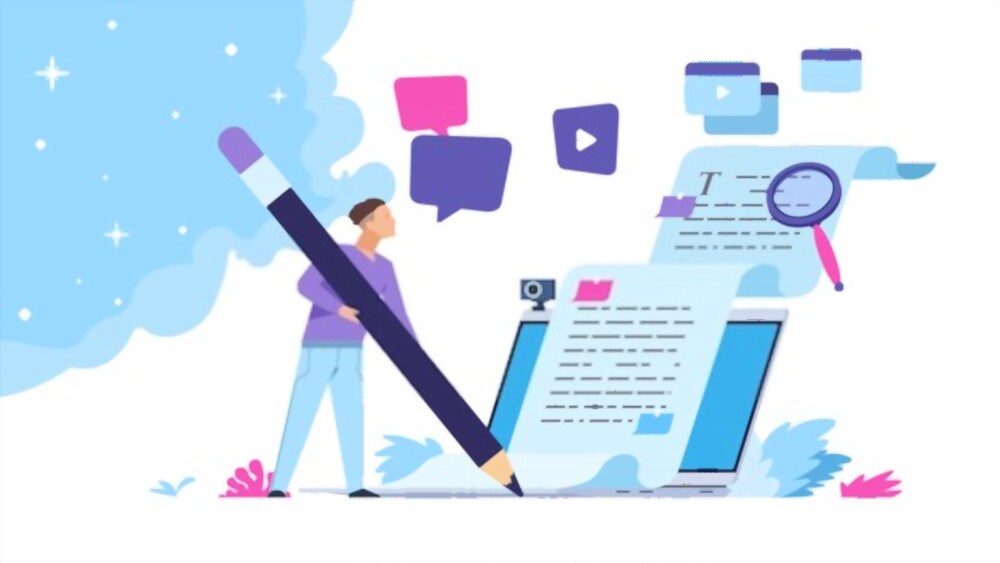
Writing TOK essays or preparing for the presentation is not a fun process, but we can help make it better by showing you how to choose the most suitable TOK topics for the assignment.
In general, theory of knowledge in IB is one of the key pillars through which students learn critical thinking, open-mindedness, and how to explore the world and themselves. These noble goals are achieved in a two-part assessment consisting of an essay and presentation.
Choosing the right topics for your theory of knowledge presentation is the foundation of passing the IB TOK part of the assessment.
Help for Assessment IB experts have composed this useful step by step guide to help you choose the best topic for your IB TOK, but we also do more than that. If you need a reliable, expert, and experienced TOK specialist to write your essay for you, then you can simply skip the tedium of explanations ahead and order our TOK essay writing service .
Of course, that doesn’t mean you can’t do it yourself if you put in the many hours of work and refinement required. Let’s get started on how to choose the most relevant topics for your theory of knowledge essay and/or presentation.
How to Choose a TOK Essay Topic
Each year, IB provides a list of 6 topics called prescribed titles, or PTs, from which candidates have to choose one to base their essay. The prescribed title should be used as-is, with no changes in wording or format.
Prescribed titles cover various topics and are multi-disciplinary. They are quite general and open-ended, as befits a good title. When you first read the six titles, you will notice that they sound abstract. That is a result of generalization, so you need to make them more real and transform them into something people can understand.
These steps will help you choose good TOK topics for your essay and presentation.
- Write all the six titles on a blank page, leaving plenty of space between them.
- Read the titles individually, and think about each of them for a few minutes. Underline the keywords in the title, note down any inspirations you have, and identify at least two perspectives or viewpoints that you can use.
- Check for personal affiliation. One thing you will need is real life situation, which comes easier if you can associate the title to something, which happened/happens to you. For example, for 2019's November TOK 3rd title " do good explanations have to be true ?", one student drew parallels to how he solves math problems and counter-checks with answers at the back of the book.
- Choose a title that you understand well or one for which you can easily acquire background knowledge. You can do this by picking a title whose areas of knowledge and ways of knowing interact with what you are currently studying.
These are simple guidelines designed to help you pick the right TOK essay titles. They are only meant to help the student with the process rather than being cut-and-dry rules.
With that, it's time to have a peek at the prescribed titles for the May 2020 and November 2019 TOK essays.
TOK Prescribed Titles November 2019
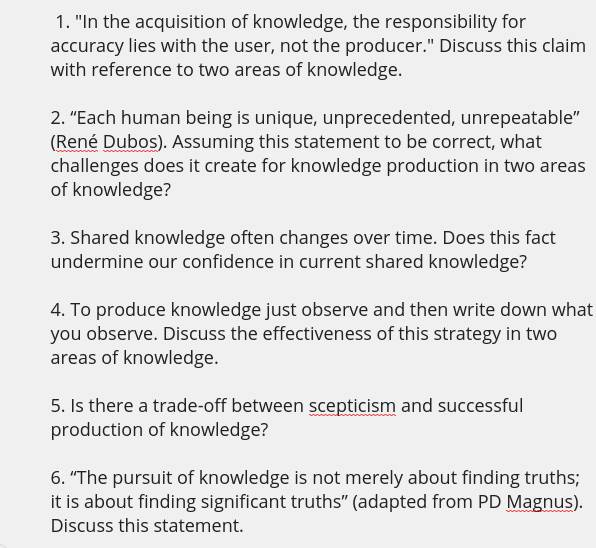
IB Prescribed Titles May 2020
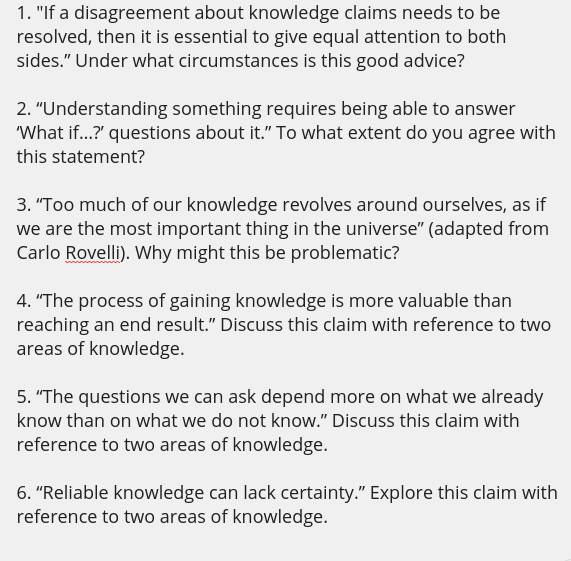
The student must thoroughly understand the prescribed topic and break it down into parts that are easier to digest. This is called unpacking the prescribed title.
How to Unpack TOK Essay Title in 9 Steps
Step 1
Underline the terms that you’ll need to define or explain. You must never assume that the reader/person marking your essay knows what you mean, because definitions can be subjective. For example, in the title do explanations have to be true question, what is the definition of “explanation” and “true”?
Step 2
List and note the assumptions made in the title, if any. For example, the assumptions are clear in this title given in the November 2019 session.

Decide whether you will need to challenge the assumption made. In this case, you will not as the title commands you to assume it to be true.
Pick out any explicit requirements in the title and list them out. For example, in the following May 2020 title, can you pick out any explicit requirements?

From preliminary investigation, we can see we will need to explore Picasso as a person and his art to understand not so much what he saw, but how. Then we will be able to make a case for or against his claim.
Step 4
Underline or list the action words in the title. These are words that direct or command you to do something. Such action words include analyze, compare, explore, and many others.
Identify alternative angles and approaches to the title. You will already have a few ideas from when you were choosing the title. Each unique approach is a new opportunity to explore the title afresh.
Step 6
Create and write down your thesis, clearly identifying your position in relation to the essay title. If you don’t know how to do this, explore our definitive guide on how to write a TOK essay .
Step 7
With your perspective of choice, select the relevant AOKs and WOKs, which you will base your essay on.
Step 8
Pick out claims and counterclaims, and write them down in general terms. At this point, you are essentially writing down an outline for your essay, which gives you the chance to back off a particular title if it doesn't provide enough reference material.
Step 9
Finally, come up with germane examples you will use. They must have a strong correlation to the title with clear links. The best places to draw them would be your coursework, global events, or personal experiences.
That is how you select and deconstruct IB TOK essay titles. However, that is only 67% of the work. You will also have to come up with a TOK presentation.
The fact that you also have to tie a chosen topic with real-life situations as well as AOKs and WOKs is not fun at all, at least for most non-nerdy students.
How to Choose TOK Presentation Topics, With Examples
The TOK presentation does not give you the luxury of having 6 titles to choose. Without some inspiration, you will be flying blind. Here is what you can do to make sure you come up with the perfect TOK topics.
The topic has to be something you are interested in or passionate about. Remember, you will be presenting it for at least 10 minutes to a room packed with people, so you had better have enough motivation. You need to be knowledgeable, confident, and autonomous with it.
Make it a topic that you can relate to some part of your life. This will give you plenty of real-life situations (RLS) with which to support it. At the very least, make sure to have a wealth of global events or historical evidence to run with.
The topic should be presented as a question that is not easily answered with a Yes/No statement. In other words, the goal is not to find answers but to evoke more questions before you can get the answer. They usually start with "to what extent …" and invoke one or more WOK or AOK.
The topic should be a debatable one. That means it should have at least two compelling arguments or facets, and will naturally raise questions about the knowledge question you will be exploring.
It also has to be specific and concise. You will only have 10 minutes to present your case, and a wide-angled approach will not give you enough time to conclude or explore in-depth. Your theory of knowledge presentation topic needs to be relevant. Ultimately, it needs to be applicable to a wide range of situations in real life within the same context.
Examples of Topics for IB TOK Presentation
To help you understand what is meant by these steps, here are 10 examples with relevant RLS. They are given here as inspiration, not to be copied word-for-word. If you do that, you won't have the required organic thinking required to defend your presentation.
- To what extent does emotion play a part in buying products online? RLS: Purchase of overpriced designer clothes that have no corresponding practical value.
- To what extent does social hierarchy affect interpersonal relations and how we treat others? RLS: How older kids, prefects, team captains, and class monitors bully those perceived to be lesser than them.
- How much information is needed to make a theory credible? RLS: The various conspiracy theories about 5G, the Coronavirus, aliens, etc.
- What role do celebrity persons play in influencing culture, fashion, and morality? RLS: Teenagers who take drugs because their favorite rap artists do.
- To what extent can mathematics be trusted as a credible source of actionable knowledge? RLS: The math-based models and predictions used to map and predict the spread of the Coronavirus, and their results.
- To what extent does language shape the mental acuity of children? RLS: Intelligence of native tribes compared to supposedly “civilized” invaders in the past two centuries in America.
- The cost of knowing: to what extent does exploring one part of knowledge blind us from the rest, which is not necessarily insignificant? RLS: Religious leaders refuse to acknowledge scientific proof about the effects and spread of the Coronavirus because of their faith.
- Ethically speaking, what effect has the legalization of marijuana in various states had in society? RLS: increase in the use of hard drugs for which marijuana is a gateway drug in teens and young adults.
- To what extent does social media infringe on privacy and personal safety? RLS: Zuckerberg’s admission to Congress that Facebook infringes on privacy on the grounds that “people want to share information so long as they can control how it spreads.”
- To what extent should freedom be allowed to undisciplined individuals if overall good for the society is to be maintained? RLS: Guns and gun safety in the US in relation to the concept of freedom embedded in the US constitution, as compared to dictatorial governments such as China or Korea.
Help With TOK Titles and Essays
Having chosen the right TOK topic is only the beginning of a long and intensive process. It is meant to be highly rewarding and revealing to the student, but in the end, it's the marks you get that matter.
The net effect of that in education is a topic you can discuss in your presentation. In the meantime, let Help for Assessment get you top marks in your TOK essay.
Our IB TOK experts are highly experienced in both the essay and presentation sections of the IBDP assessments.
If you need help with writing your IB essay, order the TOK writing service now and get huge discounts of up to 25% on your first order. As always, you can trust us to deliver top quality, reliability, and 100% unique and well-researched work.
About the author
Antony W is a professional writer and coach at Help for Assessment. He spends countless hours every day researching and writing great content filled with expert advice on how to write engaging essays, research papers, and assignments.
Leave a Reply
Your email address will not be published. Required fields are marked *
Classic TOK lessons
TOK Home > TOK resources > Classic TOK lessons
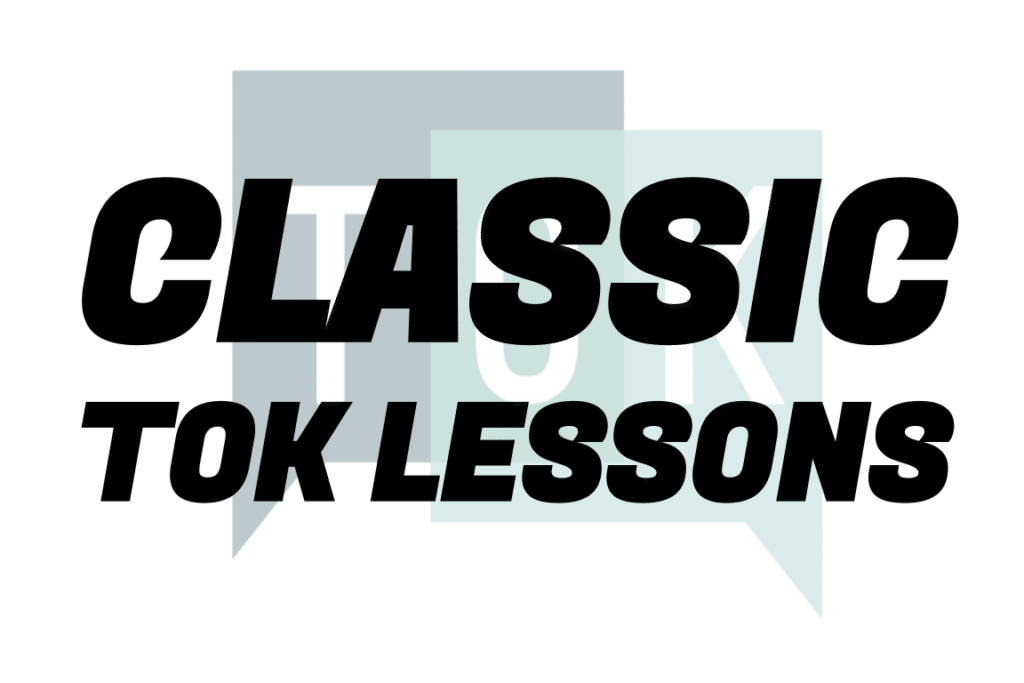
Our classic TOK lessons comprise an extensive range of classroom-ready presentations that enable you to deliver the course directly via the core and optional themes, and the areas of knowledge .
We are in the process of updating all the lessons for the 24-25 academic year (planned completion date – July 2024), adding new real-world situations, and more activities inviting students to think about the relationship between AI tools and knowledge.
Links to the classic lessons
Click on the buttons below to take you to the classic TOK lessons. Remember that our TOK mini-lessons are also arranged via area of knowledge and theme, so you can also use these to deliver the course in the ‘classic’ way.
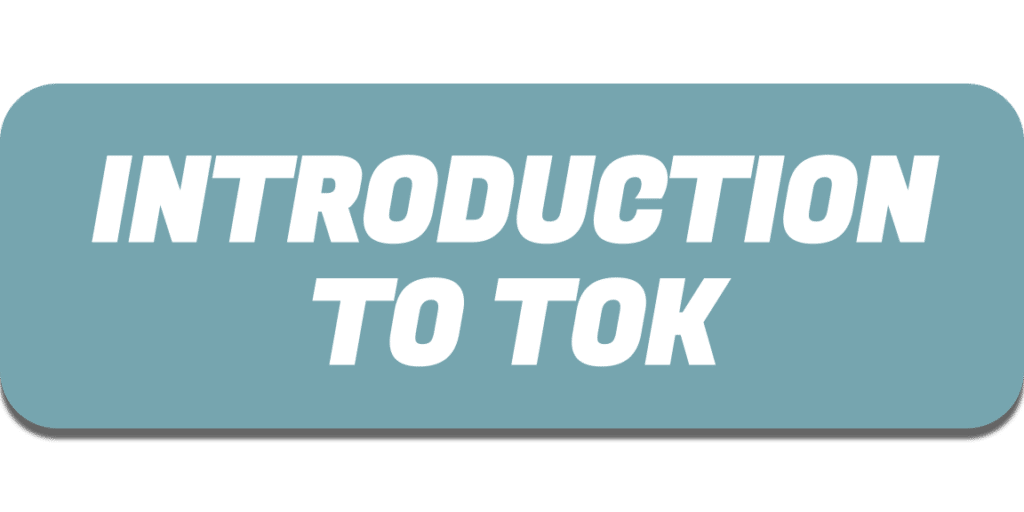
Download these free sample classic TOK resources !
To access the classic TOK lessons, become a faculty member of the site. You can see our approach by downloading the free sample lessons below.
We have updated every single classic lesson for the 2023-24 academic year to ensure they are driven by the latest real-life events and issues, and have added extensive content linking ChatGPT to the acquisition of knowledge, so that students learn how to use AI-tools in an effective and ethical way.
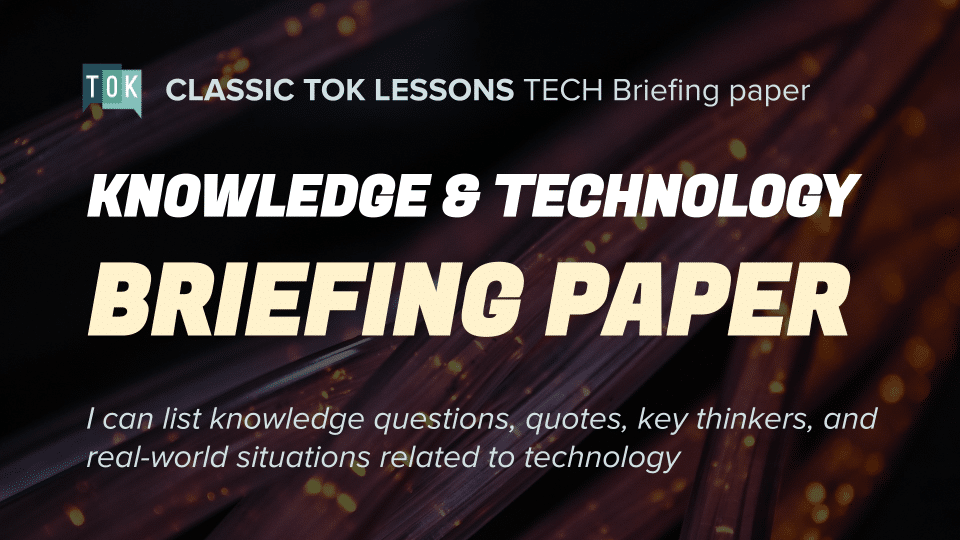
Download a sample briefing paper (for technology), giving students a quick overview of this aspect of the course, and helping them to anchor their understanding.
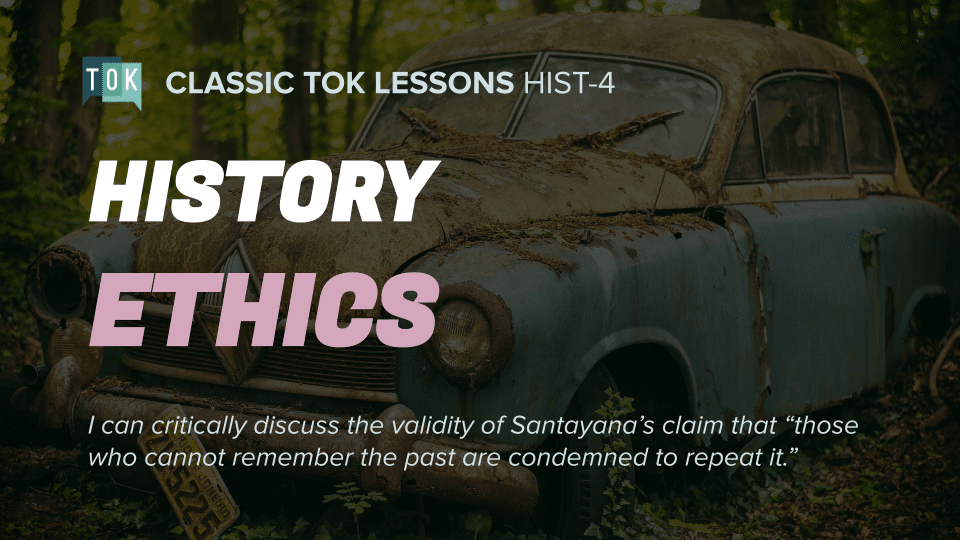
Download a sample ethics lesson, helping students to evaluate whether we are capable of learning from history, and moving our morality forwards.
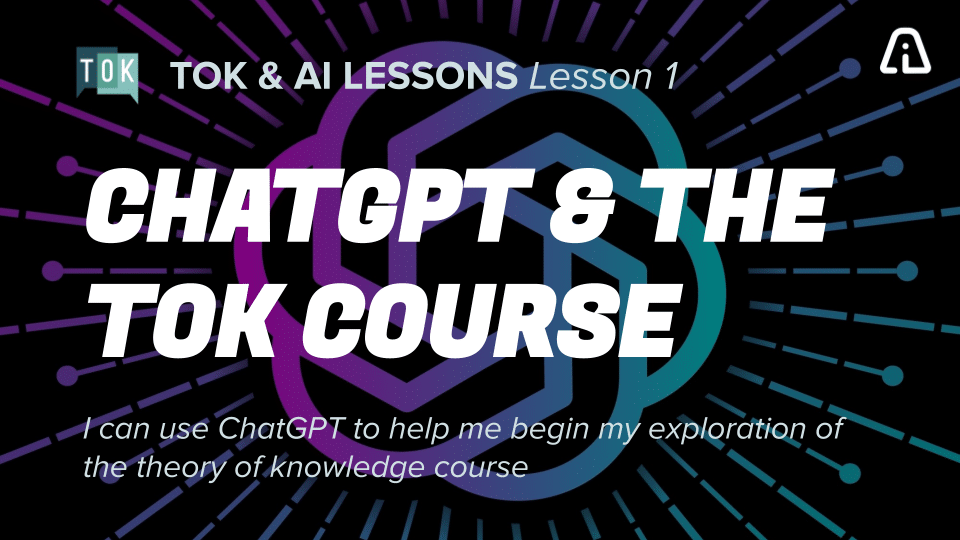
Download a sample introduction to TOK lesson, looking at the relationship between ChatGPT and knowledge, and how we can use AI tools effectively and ethically.
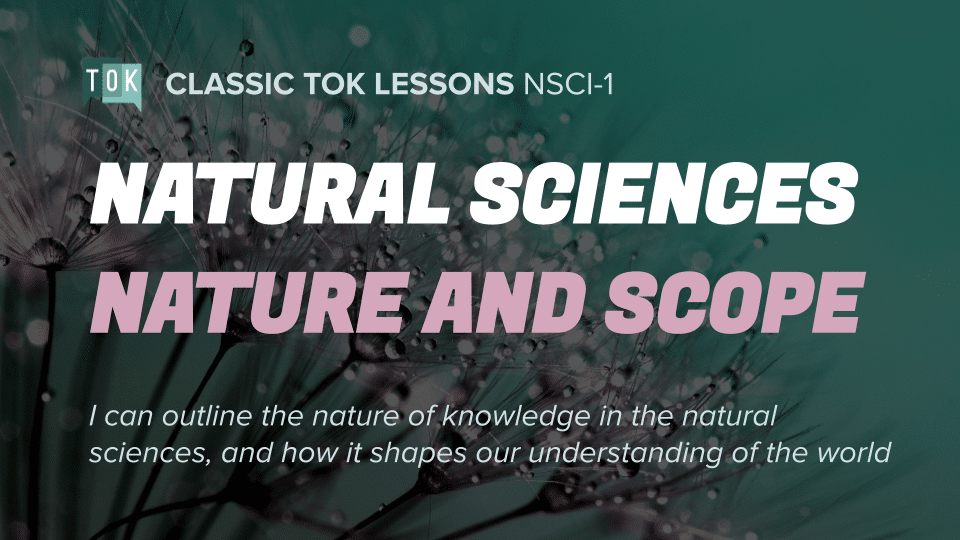
Download a sample nature and scope lesson, inviting students to consider and modify their initial thoughts on the nature of the natural sciences.
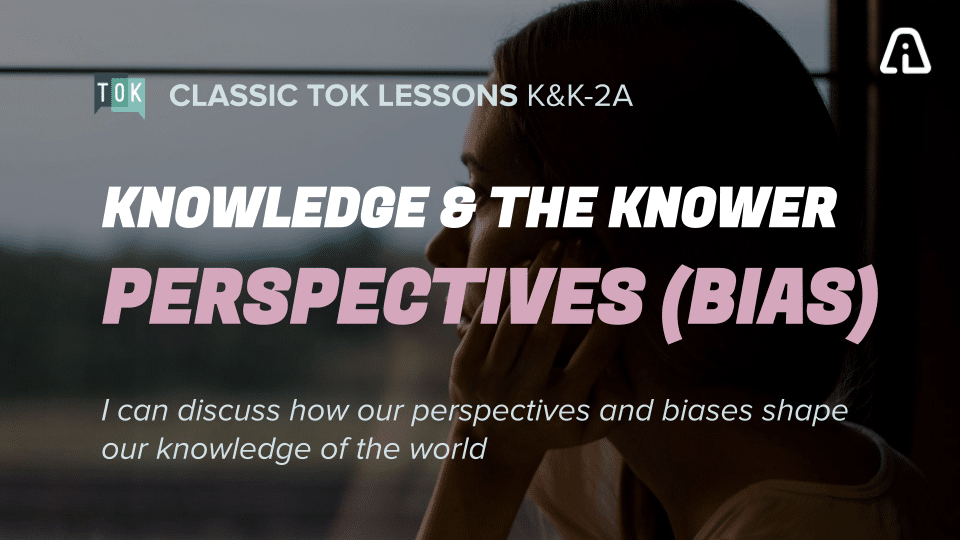
Download a sample perspectives lesson, supporting students as they explore the way our biases shape the way we construct our knowledge about the world .

Download a sample methods & tools lesson, looking at the difference between descriptive and prescriptive approaches to language.

Help your learners to exit their echo chambers!
Our online and in-person workshops offer the usual support for students writing the essay and exhibition, and TOK departments designing great courses.
But our training sessions go much further than this: by focusing on authentic critical thinking , they demonstrate how to help learners confront, rather than confirm, their biases and assumptions, and exit their echo chambers. This makes them accessible and relevant for all teachers, whatever their subject or programme. Read more here .
What are your chances of acceptance?
Calculate for all schools, your chance of acceptance.
Your chancing factors
Extracurriculars.
Guide to the TOK Presentation
What’s covered:, what is the theory of knowledge (tok) presentation, how is the tok presentation scored, how to pick a tok presentation topic, how to structure your tok presentation.
The International Baccalaureate Diploma Programme (IB/IBDP) is a high school program offering courses in subjects, ranging from mathematics to Arabic. Students sign up for a holistic approach to learning including external examinations, internal assessments, research papers and community service hours. Students will have to do a bit of everything while completing IB’s core, including CAS, Theory of Knowledge (TOK), and the extended essay (EE). Understanding how to excel in TOK will usually help students in their other aspects of student life. It’ll be important to be familiar with the basics of TOK as a subject before progressing into one of its components, the presentation.
Quite similar to the TOK essay , the TOK presentation is an attempt to assess your critical thinking skills while conveying your opinions in a clear cut manner. While a TOK essay is more conceptual in its nature in tackling the focal point, the TOK presentation answers a knowledge question by making use of actual real life scenarios to display your understanding of TOK concepts .
The TOK presentation can be done individually, in pairs, or in a group of three. It’s usually delivered in front of your TOK classroom, making this an internal assessment that other students are watching and taking peer review notes on. Each presentation gets a max of 10 minutes per presenter, meaning if you have three people, you get 30 minutes. The actual presentation is followed by a discussion section where the presenter actively engages in a Q&A with the audience and the teacher.
A lot of students really struggle with where to start the presentation, but if you break it down by following a few steps it gets a lot more manageable:
1. Knowledge Question (KQ)
The knowledge question is the focus of your presentation. Upon being given a list of topics for the TOK presentation, keep in mind that the list of selections changes every examination set. So, once you pick a topic, you could create a KQ that analyzes this topic to a greater degree. An example of a knowledge question could be: “What is the role of faith in making ethical decisions.” This is a good knowledge question because it incorporates ways of knowing (WOKs) which are important to analyze in any TOK presentation.
2. Real Life Situation (RLS)
A RLS is supposed to be an example or situation that you can directly use as an expression of your KQ. Relating your RLS to numerous WOKs and areas of knowledge (AOKs) strengthens the arguments you make (the claims and counterclaims for your presentation) and earns you a chunk of your grade for the presentation.
3. Planning out your presentation
Creating an outline that details each slide, and even writing down how many minutes you spend on each section of your presentation is important, allowing you to allocate time and manage your presentation efficiently. Creating this outline can also help you feel more confident when your presentation day comes around too!
These three tips can serve as the founding basis for your presentation and will definitely help get you started on the right track!
The grade you get in IB includes the core (CAS, extended essay and TOK). And, 33% of your total IB TOK grade is dependent on your TOK presentation, which is usually graded externally, but recorded internally. What this means is, your actual presentation will be recorded by your teacher, and the recording with your slides will be sent to the IB board, who then assigns an external grader to assess it. The presentation is scored out of ten points, as well as the essay, and the following formula explains the grading schema:
(presentation score) + (essay score * 2) = overall score out of 30
To correlate a letter grade to your score out of 30, IB uses grade boundaries. These boundaries can change any year so checking in with your school for the most updated ones is best. Here is a past example of grade boundaries:
Upon receiving a letter grade you can calculate your grade for the core of IB, which includes the extended essay, CAS, and TOK. Passing the core is essential to earning your diploma in IB and the table below outlines this further:
Your topic should be presented in the form of a knowledge question that isn’t easily answered with two-dimensional answers like “yes” and “no.” It should in its nature make both the presenter and the audience think deeper into multilevel ways of understanding knowledge as a concept. More often than not, a KQ will usually end up with people having more questions than ending up with a satisfying answer, and that’s exactly what IB wants from a presentation, a debatable and questioning idea. This is usually achieved with a KQ and RLS that work hand in hand, and successful students make sure to consistently link back to their solid topics throughout the presentation. An example of a good TOK presentation topic might look like this: To what extent does faith play a part in online shopping experiences?
In this case a related RLS could be:
Purchases of overpriced and highly coveted products with little to no inherent practical value.
Your topic should have an RLS that the audience can at least relate to, making it easier for them to stay on board for the duration of your presentation, but as well as stay engaged with what you’re talking about. Once you pick a great topic for the presentation, the rest of the planning and work actually falls in place a lot more steadily.
Breaking the presentation down slide-by-slide is the best way to plan it out, and the following structure may help streamline the process of creating it from start to finish.
- Slide 2 – RLS and Context In this slide you introduce your RLS and provide all the required context and information to explain what your RLS is to the audience. Make sure to start using jargon specific to TOK. Introducing your WOKs and AOKs is a good idea in this slide, and relating it to your RLS should be how you wrap it up.
- Slide 3 – KQ and RLS Declare the KQ that you’ve decided upon and analyze the KQ by breaking it down into segments that can be further developed on. If the KQ contains or mentions a WOK or AOK, further contextualize that specific AOK or WOK for the audience. Explain any assumptions you’ve made on the basis of your KQ and RLS as well, before you continue to develop on them.
The most important tip for IB students when it comes to TOK is the most generic one: start as early as possible! IB is an ultra-holistic approach to schooling, so there’s a lot more than just TOK going on; students usually need to make time to study for internal and external assessments, CAS service hours, and even writing their extended essays. Starting TOK work as early as possible not only sets you up with more time to produce work of higher quality, but also allows you to allocate time for other tasks as well.
Otherwise, you might find yourself feeling burnt out and unmotivated before actually submitting the essay, and maybe even prevent yourself from achieving that high score in IB that you wanted. So start early, and give yourself that easy extra advantage!
While your IB scores aren’t as important to college admissions as one might assume, showing proof that you’re taking rigorous classes and demonstrating hard work throughout your time as an IB student is more impactful. For better insight into how your chances of college admissions look, check out CollegeVine’s admissions calculator !
Related CollegeVine Blog Posts


IMAGES
VIDEO
COMMENTS
20 TOK Presentation Ideas for your IB! The TOK presentation is every IB student's worst nightmare. Speaking for an extended period of time about 'AoKs' and 'WoKs' just isn't ok. But fear not, some of Lanterna's elite IB graduates have noted down 20 TOK Presentation Ideas that worked for them! Take a look at these previously ...
Knowledge Question: To what extent is the knowledge gained through sense-perception accurate? My experience: For me, the best part of the TOK presentation process was deriving knowledge questions from the real-life situation. It was interesting to know how many different perspectives can be derived from a single RLS and that process also helped ...
Explain the counterclaim and how it is supported by evidence. Make it clear how it would answer the KQ in a different way than your claim did. Explain your conclusion and how it ties together the claim and counterclaim. Slide 5: Development #2 (3.5 minutes) On your slide: Very briefly, state your claim for WOK/AOK #2.
TOK presentation is quite similar to TOK Essay.Both IB concepts emphasize your assessment of critical thinking skills.A TOK Essay takes a more conceptual starting point inspired by the questions released by the International Baccalaureate Organisation. In contrast, an IB TOK presentation, in particular, helps an examiner evaluate your understanding of acquired knowledge based on a real-life ...
30 Different TOK Presentation Topic Ideas to Succeed in IB. Given that the TOK essay's structure and the presentation are unlike others, students can find it challenging to proceed with it. You can only do well on the TOK presentation if you have an excellent idea. 70+ IB Physics IA Topics and Research Questions
The TOK Exhibition is an internally assessed oral presentation which makes up 33% of students' TOK grade. It is a new assessment component, starting from the first assessment in 2022. The TOK grade and the Extended Essay (EE) make up a maximum of 3 points. If students receive a minimum of an A and a B across the two subjects, they will ...
Here are the tips to make an A-grade oral TOK presentation: 1. Get Your Knowledge Question Right. Even the best presentations can go bad if you poorly formulate the knowledge question, often abbreviated as KQ. Your knowledge question must be primarily about knowledge. ... The skills that you need to successfully develop your ideas and those you ...
Step 5. Identify alternative angles and approaches to the title. You will already have a few ideas from when you were choosing the title. Each unique approach is a new opportunity to explore the title afresh. Step 6. Create and write down your thesis, clearly identifying your position in relation to the essay title.
Our classic TOK lessons comprise an extensive range of classroom-ready presentations that enable you to deliver the course directly via the core and optional themes, and the areas of knowledge. We are in the process of updating all the lessons for the 24-25 academic year (planned completion date - July 2024), adding new real-world situations ...
While a TOK essay is more conceptual in its nature in tackling the focal point, the TOK presentation answers a knowledge question by making use of actual real life scenarios to display your understanding of TOK concepts. The TOK presentation can be done individually, in pairs, or in a group of three. It's usually delivered in front of your ...